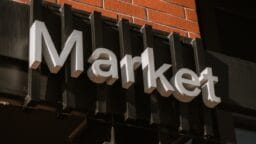Tariffs Pose Severe Challenges for Small Businesses, Particularly Black-Owned Enterprises
The aggressive tariff policies implemented during the Trump administration are inflicting considerable damage on small business owners, with a notable impact on Black-owned enterprises.
Recent findings from Small Business for America’s Future indicate that 80% of a surveyed group of over 860 small businesses harbor concern that tariffs could lead to their closure. An overwhelming 79% are bracing for a potential recession within the coming 12 months.
The implications could be devastating, especially given that Black enterprises often lack the capacity to absorb sudden cost escalations, forcing them to grapple with the decision of whether to raise prices for budget-conscious consumers grappling with inflation.
Furthermore, Black households typically allocate a larger portion of their income to vital necessities such as food, clothing, and utilities—expenses that are particularly susceptible to tariff fluctuations.
Black Businesses Confronting Challenges Amid Tariff Ambiguity
Simultaneously, approximately 80% of Black Americans are preparing to alter their spending habits in light of this uncertainty, according to this report.
Compounding these difficulties, unemployment rates among Black individuals reached a peak in July not seen in nearly four years. Such a trend could lead to reduced spending patterns with Black-owned companies, as consumers become more stringent with their finances.
Although recent reports displayed an uptick in optimism regarding future conditions, sluggish sales remain a growing concern for small businesses. Eleven percent consider it their “top business problem,” a record high since February 2021.
Around 52% of Black businesses reported experiencing declining sales as a direct result of tariffs by June 2025. Moreover, another study predicts that the burden of tariff-related costs will escalate for U.S. consumers, from 22% in June to an alarming 67% this October, a projection that Trump refutes.
The expiration of the August 1 tariff deadline has left Black small business owners expressing their frustrations to BLACK ENTERPRISE over the detrimental impact these charges have on their operations.
Restaurant Owner Confronts Tough Choices
Gladys Harrison, proprietor of Big Mama’s Kitchen in Omaha, Nebraska, exemplifies the pinch felt by many. Known for her oven-fried chicken, the restaurant blends spices and seasonings locally, yet depends on ingredients sourced globally.
Harrison emphasized the significance of these unique ingredients in differentiating her dishes, yet the unpredictable tariff landscape compels her to navigate complex business decisions. What was once an ambitious plan to launch signature seasonings in grocery stores nationwide, buoyed by a substantial marketing campaign, has been drastically scaled back due to ongoing tariff uncertainties.
“When I can’t predict what my costs will be from month to month, I can’t commit to the kind of investment that expansion requires,” she remarked. (For additional insights, visit here.)
Unforeseen Tariff Fluctuations Leave Owner Perplexed
Legrand Lindor, a Black entrepreneur running LMI Textiles in Milton, Massachusetts, shares similar frustrations. His company, a key distributor for a French manufacturer of harm reduction products, serves critical public health agencies nationwide.
Lindor recently faced a burdensome $5,000 retroactive fee on a shipment delivered under earlier tariff regulations. His subsequent shipment incurred a 50% hike in tariffs, escalating costs from $4,000 to an unwieldy $15,000.
“This kind of surprise cost is devastating for a small operation like mine,” Lindor lamented.
His business continues to grapple with medical supply challenges and mounting pressure from various fronts, which Lindor elaborates on further here.
Owner Encounters Surging Supply Costs
Katrina Golden, who oversees Lil Mama’s Sweets & Treats in Augusta, Georgia, highlights the disparate impact of tariffs on businesses like hers compared to larger enterprises.
For instance, she had an opportunity to secure coffee cup prices at $225 per case with her Chinese supplier before the tariffs took effect, but capital constraints precluded her from taking advantage of this offer.
“Unlike big businesses, I don’t have the cash flow to make bulk purchases that could save money in the long run,” Golden explained. “There is no wiggle room in my bottom line.”
Rising costs have further exacerbated her challenges, with essential business supplies witnessing a 20-25% increase in price. This includes fundamental items such as flour, sugar, and packaging materials.
Golden noted, “My coffee cups are expected to increase from $225 to as much as $300-400 per case for my next order. With only about 60 days’ supply remaining, making sustainable business plans is daunting when policies change so rapidly.” Her workforce of four is also feeling the strain.
Lindor encapsulated the broader suffering inflicted by tariffs succinctly: “We lack the resources large corporations have to absorb these sudden shifts, which have curtailed our plans to establish our own warehouse and create additional jobs.”
Source link: Newsbreak.com.






